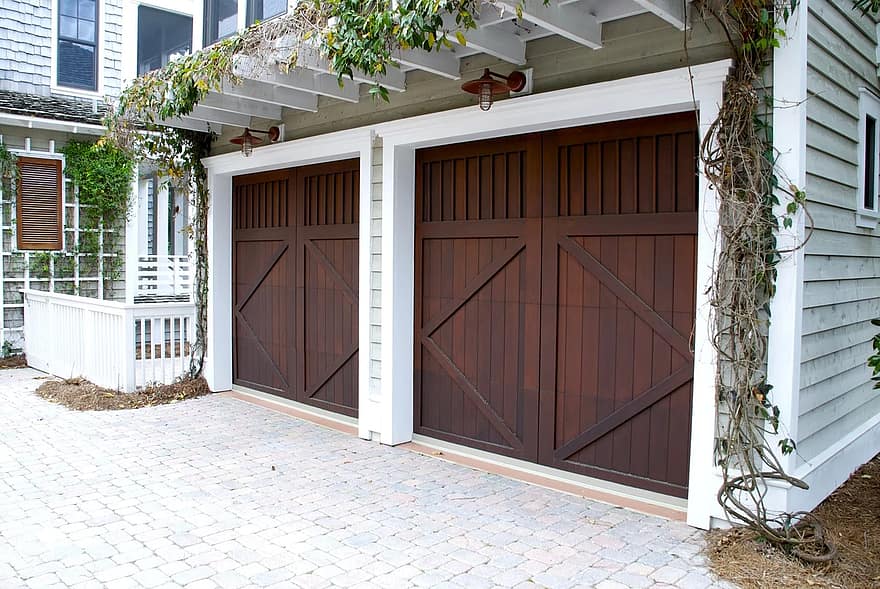Accessory Dwelling Units, more commonly called ADU’s, have been gaining popularity in recent years. But are they a good investment?
Not all real estate experts agree, so let’s take a deep dive to see if ADU’s are worth the price tag.
What Is an ADU?
An accessory dwelling unit is a smaller, secondary unit on the property of a single-family home. It can be attached or detached, but it generally taps into the utilities of the main unit. Minimum requirements to be considered an ADU are a kitchen (or kitchenette), bathroom, bedroom/living space, and private entrance. Although Accessory Dwelling Unit is the technical term, they are often referred to as granny pods (or flats), casitas, carriage houses, or in-law suites.
While they typically range in size from 300-500 square feet, they can be larger based on budget and amount of land. Many people convert their garages into ADU’s while others build brand new units from scratch. If that sounds claustrophobic, ADU’s can be deceptively spacious when designed thoughtfully.
ADU’s have many different uses, including being used as a guest home for friends or family, long-term rentals, or vacation homes such as AirBNBs. They can also be used as a separate home offices or fitness or art studios.
Among the more common uses for an ADU, many homeowners create them initially as a “granny pod,” a home for aging or disabled parents. It allows families to live separately while maintaining close proximity in case of emergency. With many older Americans downsizing, families have embraced the idea of the granny pod.
While the thought of having in-laws living in your backyard may inspire terror, these units have become increasingly popular, especially on the West Coast where home prices are even more terrifying.
What Does It Cost to Build or Buy an ADU?
There is no set price to build an ADU but estimates generally range from $60,000-$180,000 in total expenses. Factors that affect the price of a unit include size, location, amenities, and whether or not you will be starting from scratch, converting an existing structure, or buying a prefab unit.
Cost to Build from Scratch
Building from scratch is generally the most expensive way to go. You likely won’t get the same bulk materials discount as you would for a normal home, but you’ll still be buying all the materials for the unit. On top of this, you will have extensive labor charges unless you plan on building the unit yourself. It is difficult to get a permit for such, so most ADU’s are built by contractors. If you are a real estate investor looking to add an ADU, this is almost certainly the direction you will go.
With all of these considerations, the cost to build from scratch often ranges as high as $130,000 to $180,000. However, if you live in a high-cost area such as Los Angeles, this can easily top $200,000, especially with additional amenities.
Cost to Convert Existing Structures
If you have a garage or basement or large shed that you don’t use, you can convert it into an ADU. There will still be materials and labor costs, but since the foundation and bones are already there, they will be significantly less than building from scratch. Estimates range from $20,000 to $100,000 when converting an existing structure. Keep in mind that you will have to tap into the current utilities on your property, so there may be extra conversion fees.
Cost to Buy a Prefab Unit
Don’t want to design your own ADU from scratch? No problem, you can always buy a prefabricated accessory dwelling unit.
These structures are simpler and more generic but are easy to install and often come in at a lower price than building from scratch. Some prefabricated Granny Pods sell for as low as $15,000, but the median price is $52,000. On the higher end, you can expect to pay $125,000 for a prefabricated unit. Depending on your situation, this may still be cheaper than building your own structure.
 How to Finance an ADU
How to Finance an ADU
Most of us don’t just have an extra $100,000 to $200,000 lying around, so financing an ADU is likely your best course of action. Of course, if you do have the cash on hand, you can avoid thousands of dollars in lender fees and interest by paying outright.
You’ll likely want to get in touch with your current lender if you are considering building an ADU, as they will have the most up-to-date information on your home and the regulations and market conditions in your area. However, you have a few common options when it comes to financing.
Your first option is to refinance your entire home and take some cash out to pay for the construction of the ADU. If you have enough equity in the property, this may be the easiest way to go.
Conversely, you could qualify for a renovation loan. As long as you are gainfully employed and have enough income to cover the increased mortgage, you should qualify. This allows you to keep the equity in your property and still build the ADU.
If you have sufficient credit card limits or business credit lines, you can even borrow the costs that way and avoid lender points at the settlement table. Try Fund&Grow to raise unsecured business credit cards and lines, and to avoid cash advance fees.
Before you decide on a form of financing, compare rental property mortgage terms to make sure you understand all your options.
Permits & Other Red Tape
The cost of an ADU may be the hardest initial pill to swallow, but the permitting and red tape can cause headaches for months. Just like with any construction, there are many regulations when it comes to building an additional unit on your property.
Note: If you plan on purchasing a home that already has an ADU, make sure you verify that the addition is permitted!
There is no universal answer to ADU permits, as regulation is local and depends on where you live, and both state and local regulations may play a part in your decision. Some municipalities only allow for attached ADU’s, which may not be ideal for your situation. They may also require that you provide additional parking. You will have to check with your local government and learn about zoning laws and regulations before building an ADU.
Keep in mind that if you are approved, there will be significant costs for permits, sometimes as high as $10,000.
Tax Implications
An ADU is almost certain to add to the value of your home, which means – you guessed it – that you will have to pay higher property taxes. The unit value will be added to your overall home value and your taxes will be based off of the combined value.
If you are planning on renting the unit out, you will also have to pay taxes on any rental income received as well. Fortunately, you can also write off most of the costs as tax deductions, including any interest you pay on a new loan or mortgage.
Return on Investment
If you have the time and finances, there are a couple benefits to building an ADU.
Collect Ongoing Rents
Renting out your ADU, whether to a friend, family member, or stranger, can bring in consistent revenue. If you live in a high-cost area, your rent income can often cover the entire cost of the ADU in a single year! People are willing to pay way above market to live in certain neighborhoods, and if you are fortunate to already have roots there, you can take advantage of the housing crunch.
You will have to take on some landlord responsibilities but being that the unit is attached to your house, you will be getting a huge return on your investment for a minimal amount of work.
In some cases, you may even be able to cover your mortgage costs by renting your ADU out. Use a free house hacking calculator to see how you might live for free on your own property.
Higher Resale Value
As housing becomes more expensive, potential buyers are often swayed by the existence of an ADU. With a Granny Flat, you’ll be able to ask for well-above market price, especially in crowded areas.
Investors will see an ADU as additional income and may even get into bidding wars for the opportunity to own two rental units on one property.
Final Thoughts
Overall, ADU’s can make great investments – if the additional rental income justifies the expense to add them. They can raise your property value or bring in rental income, both of which are good news for investors and homeowners alike.
Be sure to consider the area, zoning laws, and potential for use, but with enough research, you can find an ADU that suits you perfectly.
What's holding you back from adding an ADU to your property? What additional information do you need, to make a final decision one way or another?


Comments(3)